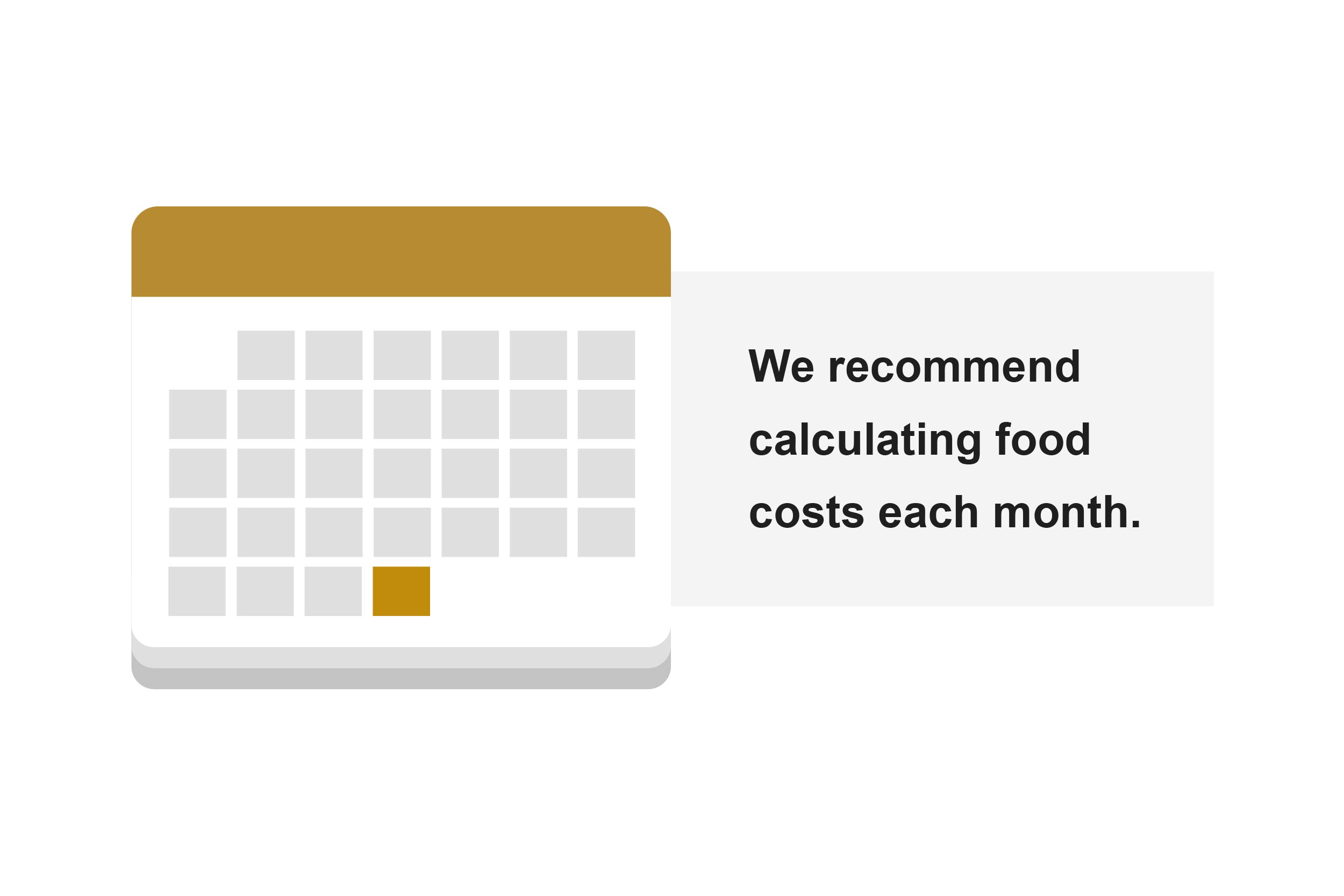
|
What is a Food Cost Percentage?
November 03, 2022

Tracking food costs is crucial to ensuring your menu pricing aligns with your business projections and profit goals. A food cost percentage measures the food and beverage expenses in relation to the sales earned when sold as menu items. Calculating a food cost percent can feel tiresome, however, it’s necessary to understand the overall financial health of your restaurant. Plus, once you are in the habit the process will become second nature.
Why Do I Need a Food Cost Percentage?
In order to gauge and predict your profit margins, you need to know how your costs and sales line up. If you are spending more than you are bringing in, then there’s a problem. However, if your revenue numbers are barely above your expenses or if they don’t consistently have a healthy ratio, you probably are not turning as much of a profit as you should.
In addition to food and beverage costs, restaurant expenses also include utilities, labor, rent, and more. While your menu prices might cover your food costs, you want to ensure you are covering other expenses as well.
Looking for more? Read What is a Restaurant Prime Cost? And Why It Matters
How to Calculate Food Cost Percentage
Figuring out your restaurant's food cost is manageable. You need to follow a basic formula to calculate your current percentage. Once that number is determined, you can look at how to adjust pricing and purchases to keep your ratio within a healthy range. Every restaurant is different, but a typical, healthy food cost percentage hovers around 28 to 35 percent.

Total Food Cost Calculations
Understanding your overall costs and how they affect your bottom line is essential to running a lucrative restaurant. It’s also important that each time you calculate your food cost percentage, you do it over the same period of time.
To calculate your total food cost percentage use the following formula:
Total Food Cost Percentage = (Total Cost of Goods Sold / Total Food Sales) x 100
Your Cost of Goods Sold is calculated using:
Cost of Goods Sold = (Beginning Inventory + Food Purchases) – Ending Inventory
Menu Item Cost Formula
To calculate your food cost percentage for an individual menu item, use this formula:
Food Cost Percentage Per Dish = (Total Cost of Dish Per Serving / Menu Price of Dish) x 100
This will give you an idea if you have been accurately pricing your plate for profit.

Taking Time To Calculate Food Costs
To get a better handle on your financials, we recommend calculating food costs each month and keeping track of the trends for your restaurant. Use the following steps:
- Examine your monthly inventory. Itemize the supplies you receive at the start of the month. You can use your inventory management system to facilitate the process.
- Figure out the cost for each item. Use the price you paid for each individual item based on your invoices.
- Check for other purchases. If you made other purchases essential for your operations during the month, like to-go packaging, track and add those to your inventory.
- Tally food sales for each menu item.
- Calculate food costs.
Once all those steps are complete, you have all the numbers you need to assess your food cost percentage.
What to Do If Food Costs are Higher Than Expected?
If you discover your food costs aren’t where you want them to be, don’t panic. There are a number of easy solutions to get your ratios in check:
- Tweak your menu prices to cover costs.
- Streamline or simplify your menu to maximize inventory and boost profits.
- Check your inventory for unnecessary or slow-moving items and consider removing them from your rotation.
- Work with a reliable wholesale restaurant supply store that offers competitive prices.
- Invest in tech to help manage labor costs.
Partner with US Foods CHEF’STORE for Exceptional Prices
When you shop CHEF’STORE, you are guaranteed to receive high-quality products at bulk store prices. From premium meats and seafood to fresh produce, paper supplies, and more, you’ll find it all! Stop by one of our many locations or get items delivered to your restaurant with our grocery delivery services.